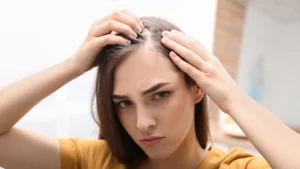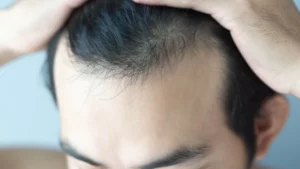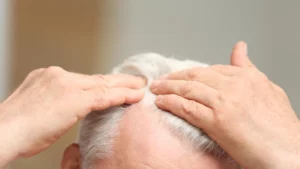Hair transplantation is a relatively easy-to-apply treatment and can be completed in a short time. After the implementation of the procedure is completed, there is a need for a care and healing process. Hair transplant aftercare must be carried out by following the right steps.
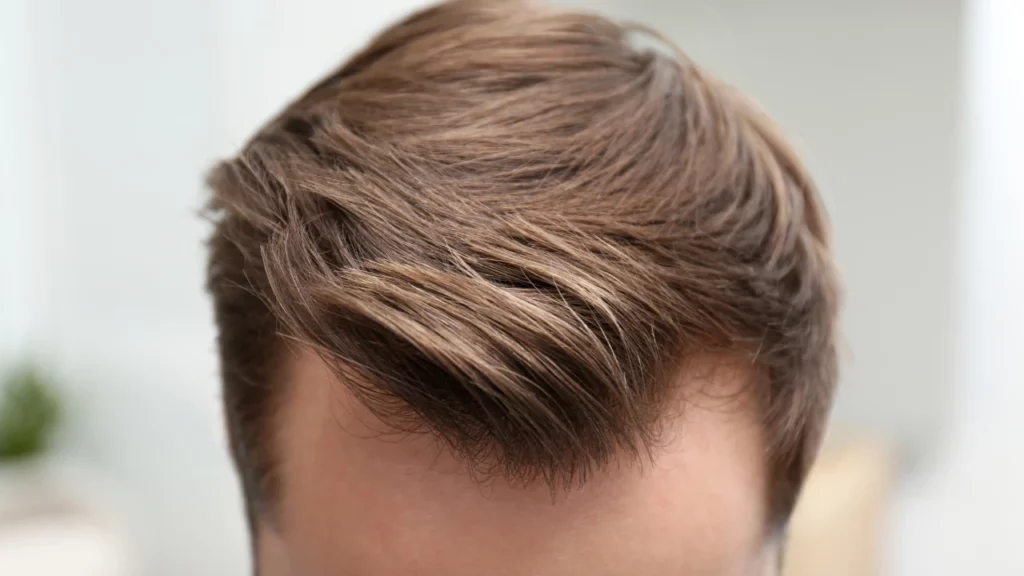
It is necessary to pay attention to possible side effects after hair transplant. To avoid side effects, your doctor should follow the entire treatment process closely. Your doctor should offer the most ideal recommendations from washing the hair to other care procedures.
What to Expect in Hair Transplant Aftercare?
After hair transplant, patients join in the recovery process, which will continue for a certain period of time. How long the healing process will take depends on the patient. The first few days after hair transplantation are very important for the patient’s health.
Patients should avoid certain habits as much as possible during their healing process. For a while, they can’t continue their classic routine life. Patients can wash their hair as long as they follow the hair washing and hair care recommendations offered by the doctor.
Time is required for new hair to grow after hair transplant. Initially, very thin hair appear and their color is indistinct. The growth period of the transplanted hair is variable and some hair loss occurs during the growth phase. The hair loss is part of the healthy process.
Patients need to focus on their scalp rather than the condition of their hair. The doctor shares all the necessary information for head care with the patients. In this way, they can avoid various side effects such as annoying itching and regression in hair transplantation.
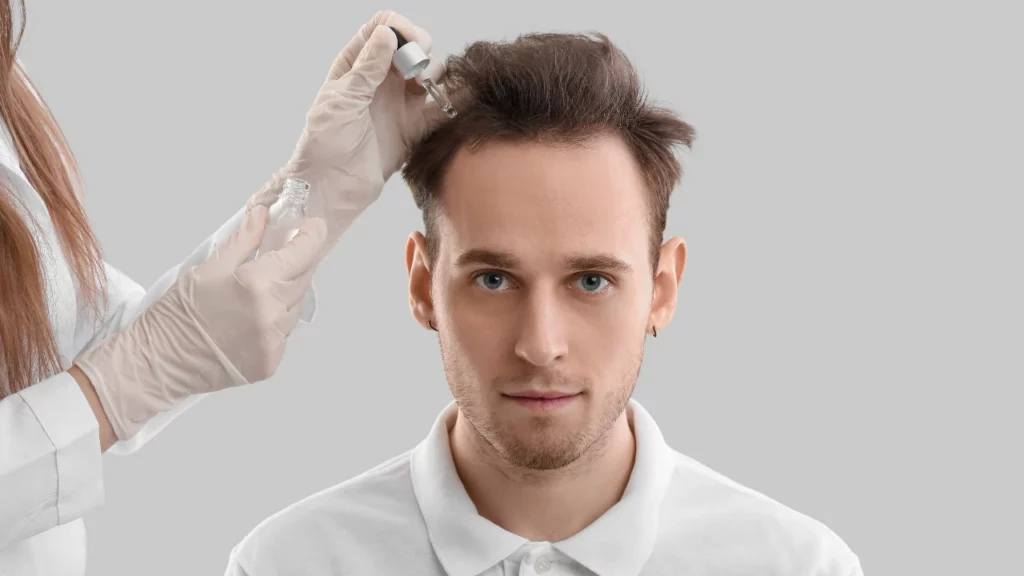
First Period: 7 Days After Hair Transplant
7 days after hair transplant is one of the most precious parts of the hair transplant aftercare approach. After 7 days following the application of the treatment, the scabs formed on the scalp begin to fall off. This is an indication that the patient is now in the healing process.
- Patients should not wash their hair for the first few days. Patients can rub and scratch the scalp unintentionally. All of these activities harm the healing process.
- Patients may feel discomfort and this is normal. Certain sleep problems may occur. For this reason, doctors recommend the use of some medications.
- After 7 days after hair transplant is completed, the hair can be washed using special shampoos. However, the doctor’s instructions should be followed.
Even if 7 days after hair transplant is an indication of the healing process, the person may continue to feel pain. In certain cases, swelling may occur, but all the side effects begin to subside. However, patients should avoid certain types of activities.
What Happens 7 Days After Hair Transplantation?
7 days after the hair transplant treatment, temporary hair growth begins. Temporary hair fall out within a maximum of 28 days. Thus, there is room for hair that will grow healthier. During the first 7 days, patients should never touch their hair.
The progression of the hair transplant aftercare process depends on the recommendations by the doctor. Patients should never be left alone in the 7-day and 14-day recovery period. The doctor should make controls and provide appropriate recommendations.
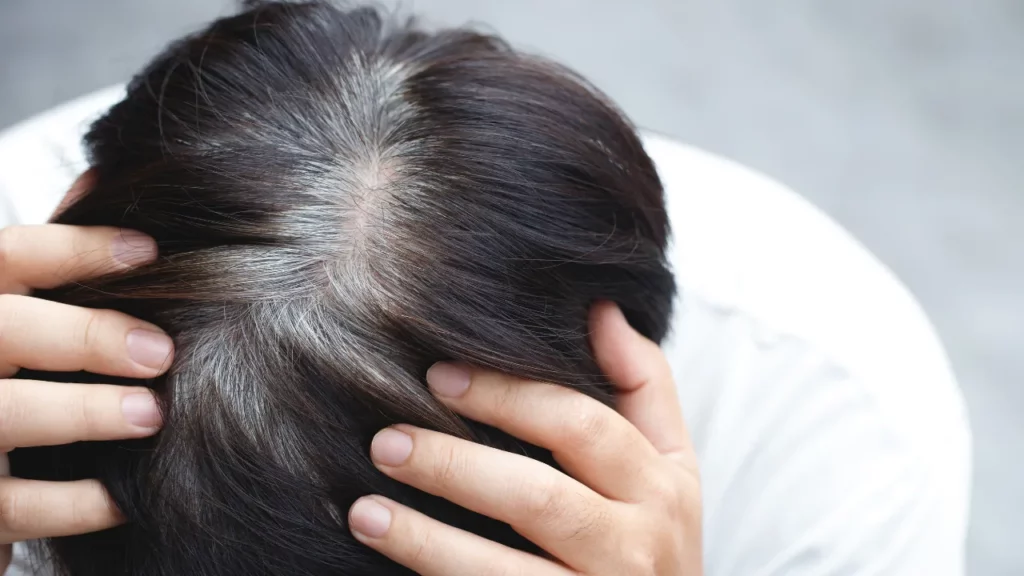
Second Period: 14 Days After Hair Transplant
14 days after hair transplant is the second important period in hair transplant treatment. After 14 days, the scabs formed on the scalp disappear and the transplanted hair falls out. The patient begins to gradually return to normal life activities.
- In hair transplant aftercare recommendations, patients can start washing their hair normally after 14 days. However, it is necessary to stick to the recommended shampoo.
- Before transitioning to the 14 days after hair transplant phase, patients should definitely not touch the hair transplant area and avoid rubbing it.
- After 14 days, the transplanted hair falls out. This is normal and hair starts to grow back. Redness may be seen in the hair transplant area for a while.
14 days after hair transplant indicates the end of the critical recovery period. For hair transplant aftercare, patients should adhere to the doctor’s instructions for the first two weeks. After the end of 14 days, it may be recommended to start normal physical activities.
What Happens 14 Days After Hair Transplantation?
14 days after hair transplantation, patients encounter significant differences. Redness continues in the area of hair transplantation, but they are temporary. Both swelling and redness problems can be resolved with appropriate hair transplant aftercare steps.
Hair transplant post operation care is a serious process. Maximum attention is needed for 14 days after treatment. It is important that the patients continue their lives by adhering to the doctor’s instructions. Otherwise, hair transplant aftercare may not progress smoothly.
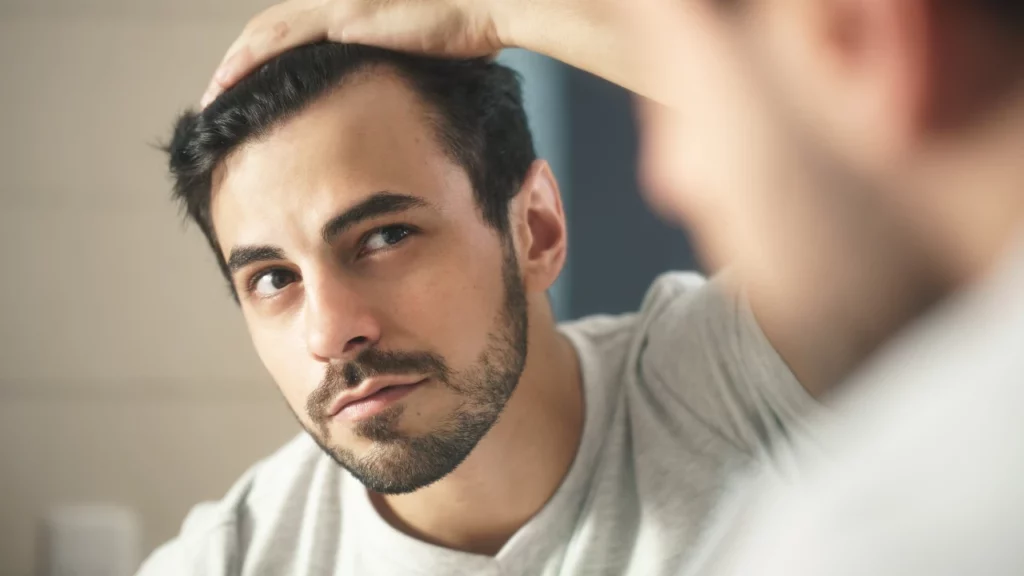
Last Period: 3 Months After Hair Transplant
Hair transplant 3 months post operation is one of the important stages in the treatment process. At this stage, new hair begins to grow. Patients experience visible results. If the right hair transplant aftercare approach is followed, the hair follicles become thicker.
- If the patient follows the recommended hair transplant aftercare steps from the very beginning, he or she will start to have stronger new hair after a 3-month period.
- After the hair transplant 3 months post operation, the patient’s hair continues to grow. At the same time, significant formations begin in the hairlines.
- Patients need to be patient for hair transplant post operation care. They can see fine transparent like hair for a while. They are a completely natural part of the process.
After the hair transplant 3 months post operation period, patients should adhere to the doctor’s recommendations in order to achieve the best possible result. After the 3-month period, they can use hair care products, but they should not touch their scalp.
What Happens 3 Months After Hair Transplantation?
If the right steps are followed for hair transplant aftercare, the hair starts to grow in a healthy way after 3 months. The colorless and thin hair leave their place to stronger hair. This indicates that you have completed the hair transplant aftercare period without any problems.
- At the end of 3 months, hair transplant post operation care does not end. It is necessary to listen to the doctor’s recommendations for hair transplant aftercare.
- After 3 months, the thin hair that can be seen starts to thicken gradually. This is a clear indication that the hair is growing in a healthy way.
- After 3 months, there is an increase in hair density. If you have not made a mistake about hair transplant aftercare, the transplanted hair starts to mix with the natural hair.
Thanks to a successful hair transplant aftercare process, patients get long hair from the 4th or 5th month. They notice for the first time what their hair will look like during this period. However, if the hair remains unhealthy, the desired appearance cannot be achieved.
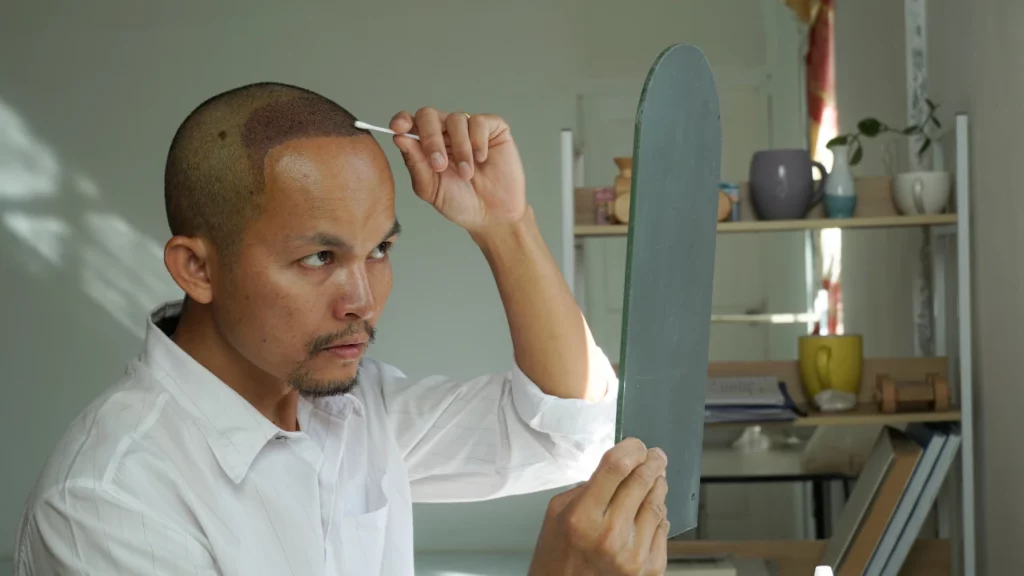
Special Tips for Post Hair Transplant Care
Post hair transplant care is important to obtain the best possible result from the treatment. It is necessary to see the care approach in question as a kind of period. It includes the steps to be taken especially after going through the 7-day and 14-day processes.
During the hair transplant post operation period, you should take care to keep your scalp clean and dry. Don’t touch your scalp until you have passed the specified recovery periods. Do not use shampoos other than those recommended for post hair transplant care.
1. Avoid Washing the Area
It is important to strictly adhere to the hair transplant post operation recommendation. You should avoid washing the hair transplant area. The reason for this is that the newly planted hair follicles are sensitive. Hair follicles can be easily damaged or slipped into different areas.
Scratching, rubbing or washing the hair transplant area is not recommended for hair transplant aftercare. You may experience significant itching after hair transplantation. Itching is an expected side effect and you shouldn’t expect it to go away by washing your head.
2. Avoid Rubbing the Scalp
In order to follow the hair transplant aftercare procedures correctly, you should avoid rubbing your scalp with a towel. You should not forget that newly transplanted hair follicles are sensitive. When you try to rub your scalp, you damage your hair follicles.
After hair transplant, you should avoid touching your head for a certain period of time. Itching and mild pain are natural. If you touch the hair transplant area, you may encounter an infection. Your doctor may want you to use certain medications for itching and pain.
3. Use Medication if Necessary
You may feel pain for a while after hair transplant post operation. Mild pain is a common side effect. Your doctor may prescribe pain medication to relieve the discomfort you are feeling. However, you should definitely not use medication without your doctor’s approval.
Hair transplant aftercare approach requires patience. Scars on your scalp take time to heal. As long as you manage to follow your doctor’s recommendations, you should have very few problems. At the same time, you can successfully get through the healing process.
4. Avoid Touching the Area
One of the critical points for hair transplant aftercare is not to touch the transplant area. Especially the first three days are very critical because you can damage the roots of the newly transplanted hair. Your doctor may repeat the warning to avoid touching over and over.
When you touch the hair transplant area, the grafts may change place. In such a situation, there is a risk that the transplanted hair will not grow. After various procedures, the hair transplant area becomes very sensitive and you may encounter an infection.
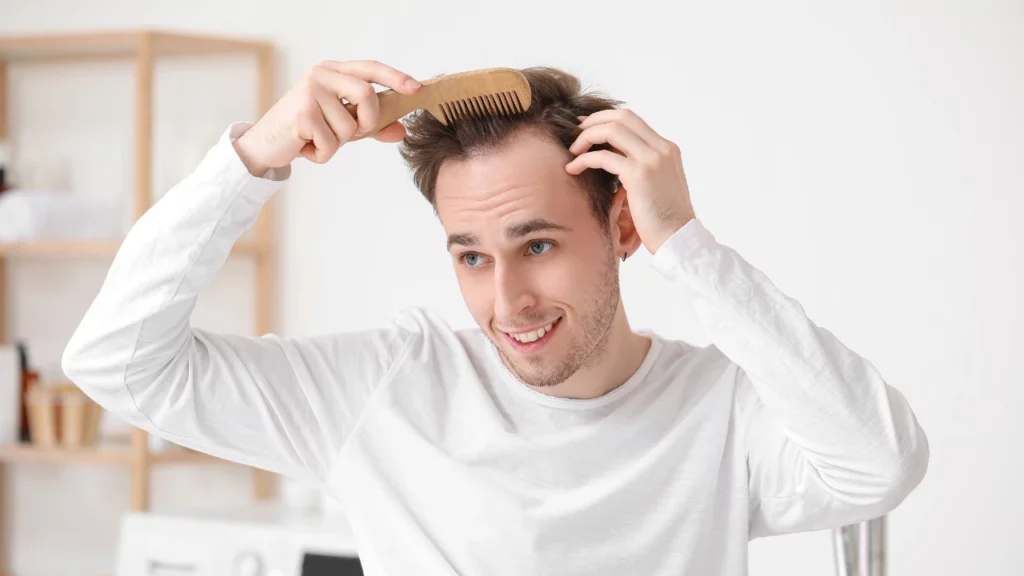
5. Avoid Hair Care Products
Hair dye, hair spray, hair styler and similar products should not be used during the hair transplant aftercare process. It is important that the transplanted hair follicles integrate seamlessly with the scalp. It takes a certain amount of time for this to happen.
In order to achieve the best results in hair transplantation, you should pay attention to your doctor’s recommendations for hair transplant aftercare. For successful hair growth, you should not use some care products until your doctor approves.
6. Don’t Panic on Thin Hair
Hair transplant aftercare is a period for obtaining the best results from the treatment. During this period, you may see thin hair or hair that has not taken its color. Many patients see this type of hair as a problem and panic. But they are an important part of the process.
You may see immature hair in the hair transplant aftercare period. Immature hair is usually colorless. Sometimes they are a different color from your current hair color. However, they fall after a certain period. Thus, your normal hair starts to grow in a healthy way.
7. Begin Message After 14th Day
It is recommended not to touch your head much during the 7-day and 14-day periods. After both recovery periods, you should start massaging your head. You can promote blood circulation and strengthen the bond between your hair follicles and scalp with messages.
After the 14th day is completed, you can massage the transplanted area. You should avoid pressing too much. You can do circular massages in line with your doctor’s instructions. Thus, you even prevent the development of scar tissue without any problem.
8. Stick to the Doctor’s Recommendations
It is necessary to adhere to the special instructions for hair transplant aftercare. Every care procedure is aimed at getting the best efficiency from the treatment. To achieve the best possible results, you should listen to your doctor during the post hair transplant care period.
You should always adhere to your doctor’s recommendations for hair transplant aftercare. Every patient’s situation is unique. For this reason, personalized care recommendations are needed. A care plan should be created within the patient’s life, habits and expectations.
